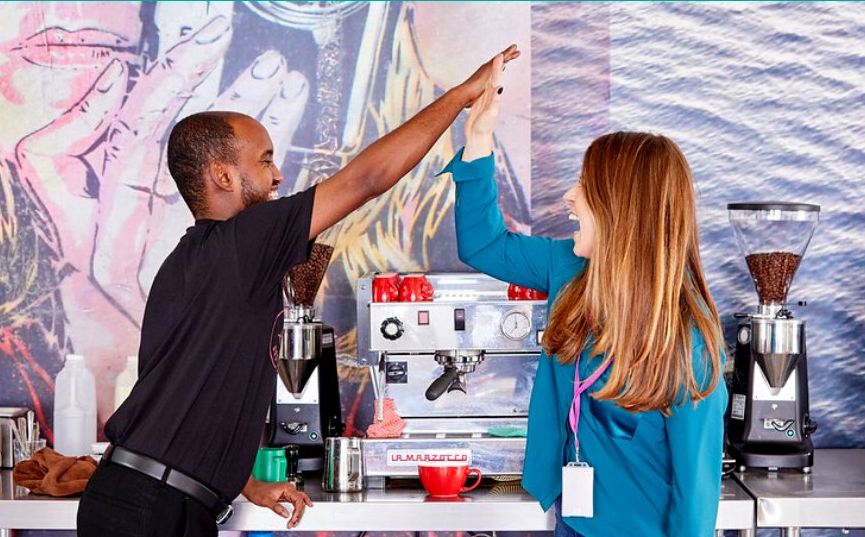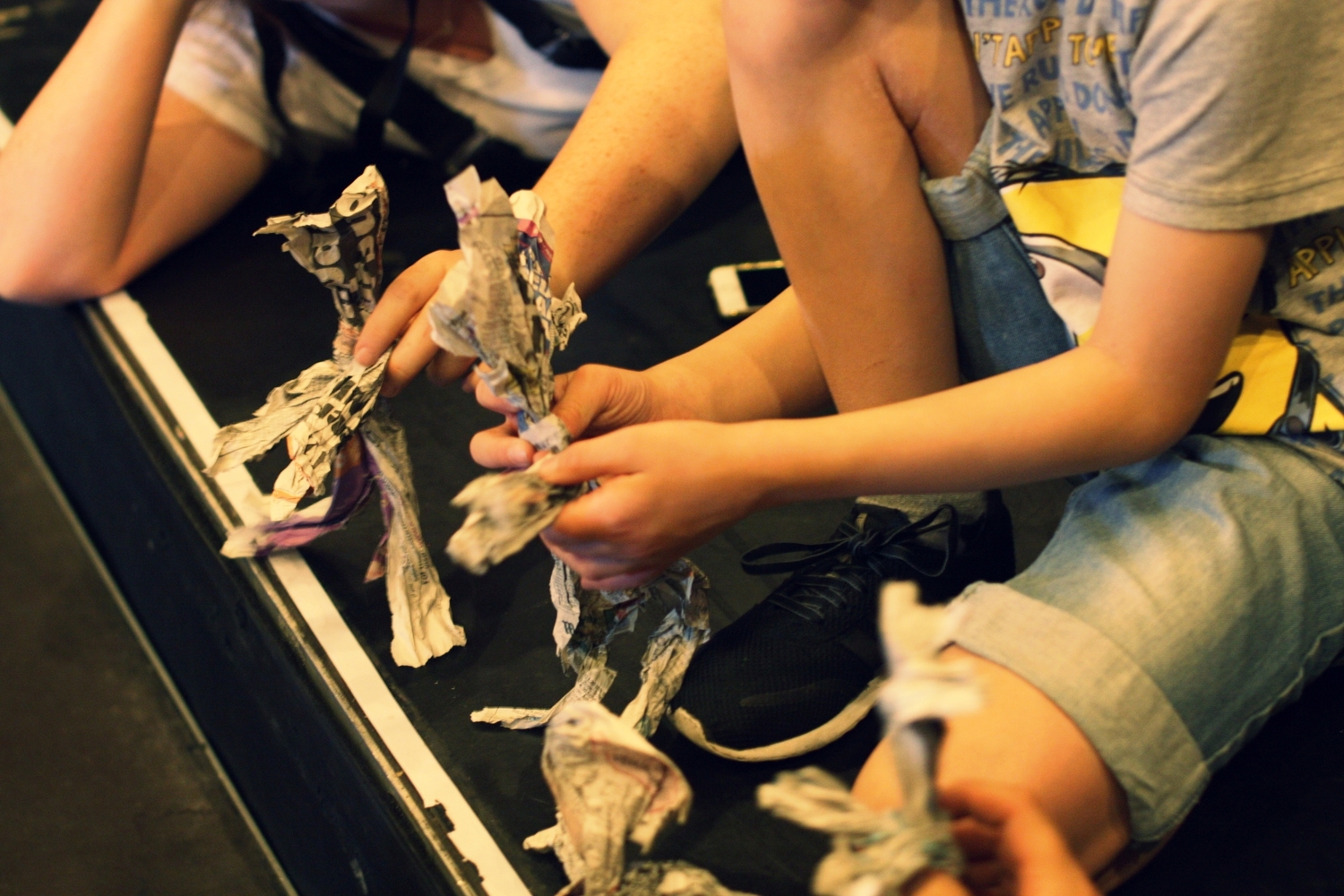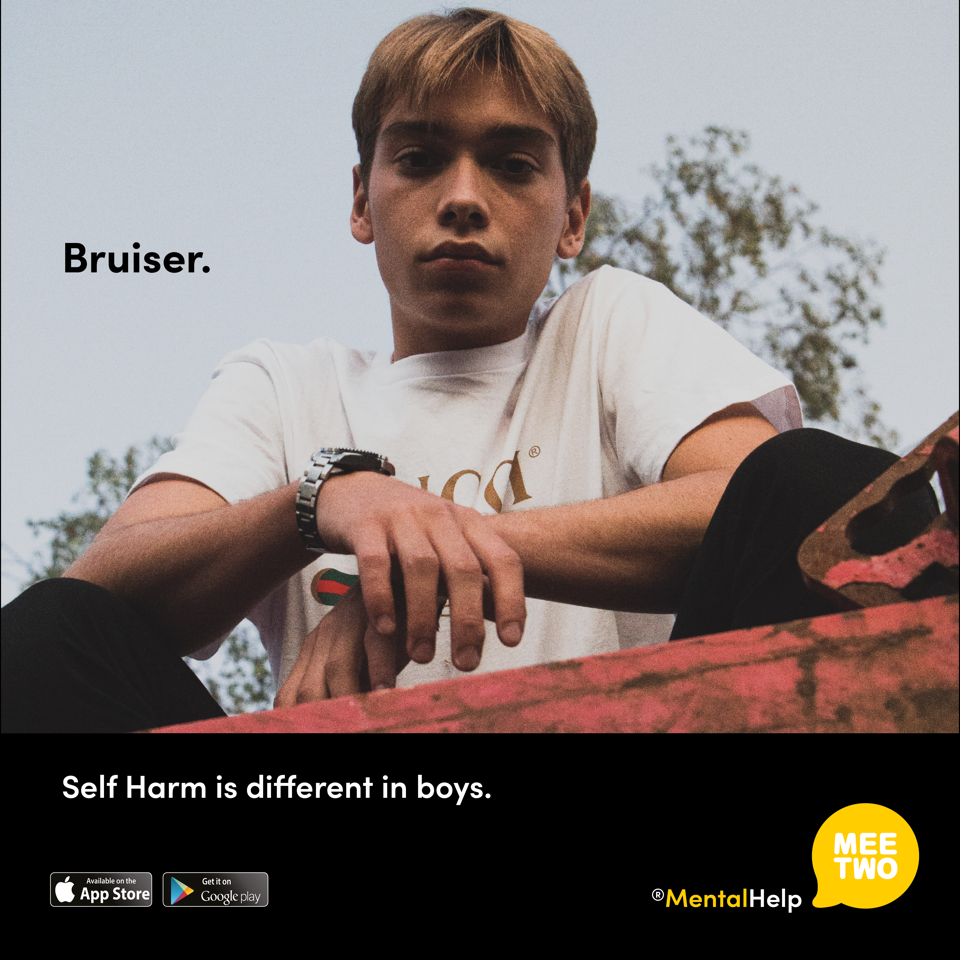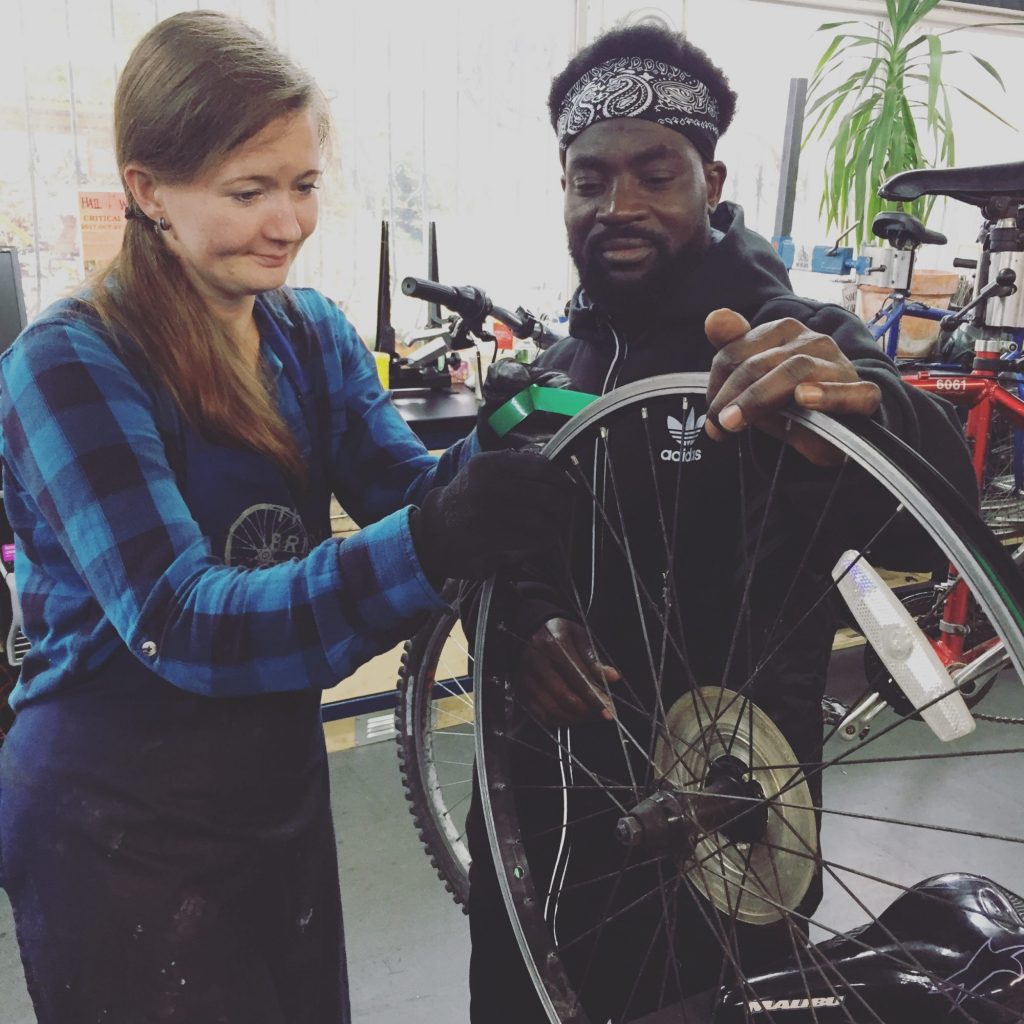Meet the Fellows Future Fund grantees
With support from Social Partners, the Fellows Future Fund allows SSE fellows to understand and grow their social impact. Grants can be used to research and communicate an organisations impact as well as investigate and develop new ways to work, new audiences or different areas of impact. Social Partners also contribute their invaluable mentoring skills to aid the grantees on their social impact journeys.
Samantha Everard, SAMEE Charity
The SAMEE Charity enables disabled people of all ages to gain further independence through successful business start ups. Founder Samantha Everard told us how the extra funding and guidance from her Social Partner mentor has allowed SAMEE to pilot an exciting new product.
“We have just devised a ground-breaking advocacy method for parents of disabled children to better help them explain their child’s impairments to linked professionals. The grant has enabled us to run a 300-hour pilot project which will support 25 parents with disabled children, and with this evidence, the possibility to scale the advocacy method is huge.”
Eve Wagg, Well Grounded
Well Grounded is a social enterprise working to develop and empower a diverse talent pipeline for the speciality coffee industry. Founder Eve Wagg has used the Fellows Future Fund to add another service to the support they give employers.
Eve told us, “The Fellows Future Fund has allowed Well Grounded to expand its employer support through the development and delivery of a range of workshops designed to help organisations build an inclusive and diverse workforce. Our mentor has really helped to develop and cement the thinking and direction of the project, and refine the activities towards the overall project aim.”

Cheryl Ndione, Purple Moon Drama CIC
Purple Moon Drama CIC is a youth arts organisation creating access to the creative industry for young people from marginalised backgrounds. Founder Cheryl Ndione was able to bring back a key source of income for their enterprise with the funding and create better organisational practices with help from her mentor.
Cheryl told us, “We can begin trading profitably again after a long period of grant-funded only activity. Our team is expanding, and getting advice on how to effectively manage and support a team is extremely beneficial. My mentor from SSE shared a useful structure for conducting meetings, using open communication and two-way accountability that could easily be set up to allow me to see any blindspots in the company’s operations.”
Ali Horton, The Gateway Collective
The Gateway Collective increases wellbeing and creates connections using the tool of community gardening. Director Ali Horton has ambitious plans to increase the production capacity of its jams, pickles and chutneys. Mentoring from an SSE Social Partner is helping Gateway achieve this goal whilst remaining stable and sustainable.
“It is our intention to relaunch the Bootle Jam Factory, making delicious products with locally grown ingredients. The funding from SSE’s Fellows Future Fund has given us the money to get the infrastructure for this new growth in place. Conversations with my mentor encouraged me to slow down and put in the steps for long-term growth, stability and sustainability.”
Lucy Vincent, Food Behind Bars
Lucy Vincent runs Food Behind Bars, a charity dedicated to transforming the food served in British prisons by working closely with prison kitchens on menu development and delivering food education to the prison community.
Lucy told us how they were able to run a six-month bakery training programme using the funding, and their mentor was able to help plan and develop the new project. “I struck lucky with my brilliant mentor who is not just an entrepreneur, but a social investor with direct experience of the criminal justice sector. He has provided valuable insight into our project plan, budget and wider work.”
Abigail Melville, We Rise
We Rise is an award winning community business created in response to gentrification and growing inequality. We Rise creates partnerships with organisations that are looking to engage more with young people. Through these partnerships, We Rise creates opportunities, inspiration and learning for young people. CEO, Abigail Melville applied to the Fellows Future Fund for support on The Driving Diversity Demonstration Project. The project aims to increase the number of young people from racialised and minoritised communities that We Rise engage with from 100 to 1000. The aim is to show employers how to be leaders of improving diversity.
A model project is already underway with global advertising agency, Leo Burnett. Although lockdown and school closures have affected progress, Leo Burnett has already held a co-designed workshop with young people that has yielded a wealth of information and ideas for the future.
Graham Miller, Double Impact
Double Impact was set up by Tony Herbert, a former user of drug and alcohol services, to develop recovery communities where people could re-establish or rebuild their lives. CEO, Graham Miller applied for funding to develop software that will help them better report on recovery interventions which may otherwise go unnoticed. The project recognised a wider issue in the sector where interventions were being underfunded because of a lack of reporting.
Double Impact have already completed creation of the software and even transferred all their data over to it. Their staff have been trained on how to use the system and create reports. In the next 6 months we will begin to see how it has supported Double Impact through existing funder reports, securing new funding, and improving the sectors’ data collection methods.
Holly Jones, Together Productions CIC
Together Productions is a CIC that brings people together and catalyses positive social change through the arts. Its projects’ build connections, understanding and community cohesion by uniting diverse groups to work together to create high quality artistic outcomes. Together Productions Director, Holly Jones received support from the Fellows Future Fund for a project that took aim at tackling inequality across arts and culture in the UK. They would do this by working with leading arts practitioners and educational consultants to develop a training programme and toolkit for participatory arts work that is non-racist, inclusive, and representative.
Together Productions revenue has been impacted by lockdown and restrictions on in-person events, which in turn has slowed progress of the project. Despite this, the team has managed to hold workshops and develop ‘Principles for Inclusive Leadership’. A new hire will soon progress the development of the training programme and accompanying materials.
Mariama Kamara, Smiling Through Light
Smiling Through Light is tackling energy access and women’s unemployment in rural communities of Sierra Leone. Only 26% of the population in Sierra Leone have access to electricity, and only 6% in rural areas. Through innovative and community-focused solutions, Smiling Through Light are making clean energy more accessible whilst creating employment and income opportunities. Founder and Director Mariama Kamara, received support from the Fellows Future Fund for a ‘Pay as you go’ solar energy solution. The solution addresses failings of the existing market, including lower transaction costs, improved transparency, savings, privacy and women’s empowerment.
Despite delays to the shipment of the system, the Smiling Through Light has now trained on how to use it and how to teach communities that adopt it. Implementation of the project is well underway and there will even be a documentary film about it produced in the coming months.
Sibusiso Tshabalala, Cognitive Paths
SSE fellow Sibusiso Tshabalala is the director and founder of Cognitive Paths; a social enterprise in the South West, primarily supporting Black-led organisations. Sibusiso noticed that the organisations they support struggled to secure contracts despite them being able to deliver high social value to businesses. This was largely down to a lack of capacity to effectively tender for contracts.
Working alongside SEUK, local authorities and two Bristol universities, Cognitive Paths are piloting a social enterprise procurement support service. SSE funding will support them to research and design the most suitable service that will enabling social enterprises looking to secure corporate contracts.
“This fund allows us to reduce the administrative burden that Social Enterprise and small business face when seeking new trading opportunities. Our project will further the support provided by SEUK through the Buy Social Corporate Challenge and increase the awareness of new trading opportunities for social enterprises.”
Jenny Young, Blue Cabin
Children currently living in care in England has increased 28% in the last 10 years. SSE fellow, Jenny Young, created Blue Cabin to work alongside care experienced individuals, local authorities, artists and arts organisations to address the issues faced by those who have been in care. Blue Cabin’s co-created Creative Life Story Work programme has already gained attention for its artist-led approach that puts care, love and respect for children and young people at its heart.
Using the Fellows Future Fund, Blue Cabin will create an online conference that showcases the value of Creative Life Story Work to local authorities, trusts, foundations and health commissioners across the country with the hope of further gaining funding and collaboration.
“It feels very special to have received this funding as our company is going through a period of significant growth. Funding from SSE will support us to host an online Creative Life Story Work Conference to share learning regionally and nationally and secure future investment. We can’t wait to get started.”

Adrienne Arthurs, The Living Room
The Living Room has helped over 4000 people overcome their addictions to alcohol, substances (including legal and illicit drugs) and behaviours such as gambling, shopping, relationships, sex and disordered eating.
In 2020/21 The Living Room aims to treat 500 adults who suffer from addiction and support 100 families and carers. With a success rate of 62% (above the national averages in areas where numbers are available), they closely monitor the wellbeing and other areas of a client’s progress whilst on a programme but with help from Fellows Future Fund they will be able to provide data on the longer-term impact of their work on their clients’ lives.
“Working with our social partner and using the funding from the Fellow’s Future Fund, we will find a method of capturing the evidence of the difference our work has had on a person’s future health, wealth and happiness, free from their addiction. Having broken the cycle of addiction and becoming a contributing citizen in society for themselves and future generations, is the real success.”
Sporting Age, Shaun Fox
In 2019 an all-party parliamentary group demonstrated “that movement is both central and fundamental to children’s positive mental health.” Former PE teacher and SSE fellow initially set up Legacy Sport regionally but created Sporting Age in 2016 to take the impact of his work national.
Sporting Age helps young people in primary schools to move more confidently, whilst also supporting and increasing competence of primary teachers. Since incorporation Sporting Age has had a positive impact on over 9,000 young people and recorded 17,000 assessments. Using the Fellows Future Fund and working with University of Huddersield, Shaun hopes to explore evidence they have found that suggests disadvantaged children perform worse in their programme assessments. This will allow Sporting Age to identify the right interventions to reduce inequalities amongst participants.
“Via the Fellows Future Fund, I will work closely with a mentor from a social partner. Together, they will aim to form a strategy to scale Sporting Age so that it can have positive impact on the health and wellbeing of many more young people and their families.”
Dave Fraser, Salford Involved
Salford Involved was set up in 2014 to address the effects of poverty in Broughton, one of the most economically deprived areas in the UK. SSE fellow and Salford Involved volunteer, Dave Fraser, was frustrated by the constant competition between organisations to gain funding to tackle the same issues. Even when he won a bid, Dave felt uneasy. He felt that more could be achieved by collaborating with his competitors rather than defeating them. When Dave heard of the Fellows Future Fund, he saw an opportunity to fund research into how social enterprises could collaborate more effectively.
“The idea that you survive by growing and becoming the biggest is an ideological shackle.” Dave Fraser, Salford Involved.
Suzi Godson, MeTwo
MeeTwo is a multi-award winning fully moderated, anonymous, mental help app supporting 18,000 young people aged 11-23. Within just a few months of being awarded one of the eight grants available, MeeTwo’s research has uncovered important information about self-harm in boys going unnoticed in hospitals.
“The research reveals that self harm in boys gets missed because girls tend to present at A&E with cutting injuries which lead to CAMHS referrals, whereas boys tend to present with injuries which require referral to fracture clinics and so their mental health is not assessed.” Suzi Godson, MeTwo.
This research has already informed their social media campaigns and MeTwo have seen a measurable increase in the number of boys using the MeeTwo app.
David Parks, The Skill Mill
The Skill Mill’s employment programme for young ex-offenders has already proven to dramatically reduce re-offending rates but they wanted to find out more about the physical and mental health benefits of their programme. Participants are hired onto cohorts undertaking environmental services that benefit the community and gain invaluable training along the way. In March 2020, The Skill Mill will launch a programme with 10 teams of young people. This programme will run for 4 years and include 320 young people.
The Fellows Future Fund has allowed The Skill Mill to develop a questionnaire that will help them evaluate the participants mental and physical well-being at the beginning, middle and end of each 6 month participation.
“This year, we’ll be launching double the amount of teams as previously. The mentoring support of Barry Marshall (Social Partners) has been a great sounding board, providing invaluable support, guidance.” David Parks, The Skill Mill
Kate Rudman, Sound Communities CIC
Sound Communities CIC are engaging disadvantaged young people with an ever-expanding programme of radio and music production workshops. They are using their Fellows Future Fund to communicate the impact of their project on its participants. An impact report will also form a template for future reports. Alongside this, a short film and digital marketing campaign will help get their story in front of potential stakeholders and collaborators.
“We are delighted to have the resources to tell the story properly of the impact we have on our participants. It will be major help for us in securing future commissions and funding too.” Kate Rudman, Sound Communities CIC.
Krysia Williams, The Bristol Bike Project
The Bristol Bike Project is a community organisation repairing and re-homing bicycles. They run programmes throughout the week, which support people from all walks of life to get out on two wheels. BPP will use their Fellows Future Fund to pilot a programme for young women. As well as performing research with participants of the pilot they will be conducting research on their existing community. BPP hopes to understand barriers that young women face to accessing their programmes as well as the mental health benefits of associated with bike use.
“We are convinced that young women’s mental health outcomes can be improved through access to bikes, bike maintenance training and community workshop engagement. This is why we want to explore the barriers they face to accessing our programmes.” The Bristol Bike Project.
Life After Hummus, Farrah Rainfly
Life After Hummus work under the motto that “Health is a right and not a privilege.” They offer hands-on nutrition and cooking classes using an intersectional framework. Classes are made available to people who would not usually be able to afford them. As they expand their services across London they are also able to showcase the, often under-publicised work of BME chefs.
By investing in the technology by which beneficiaries feed back to them, LAH hope to better understand their impact, especially on participants who repeatedly use their services.


